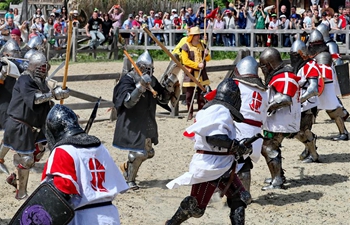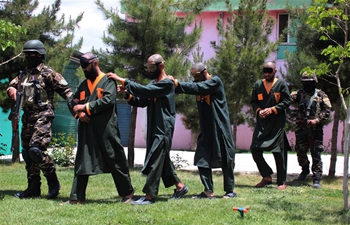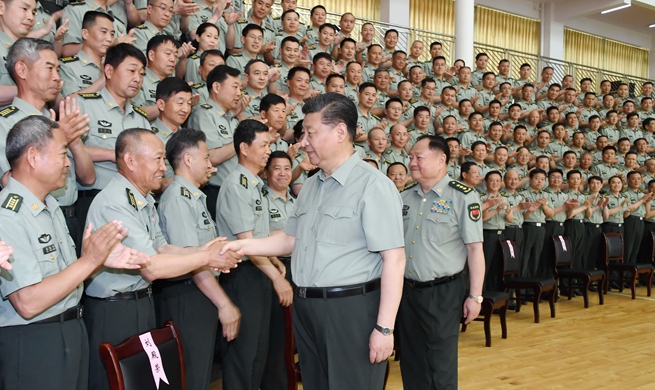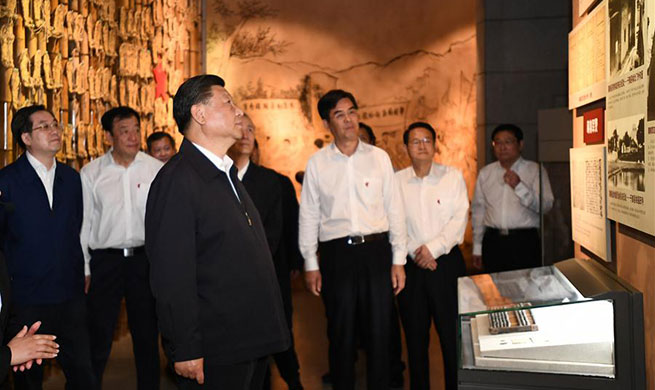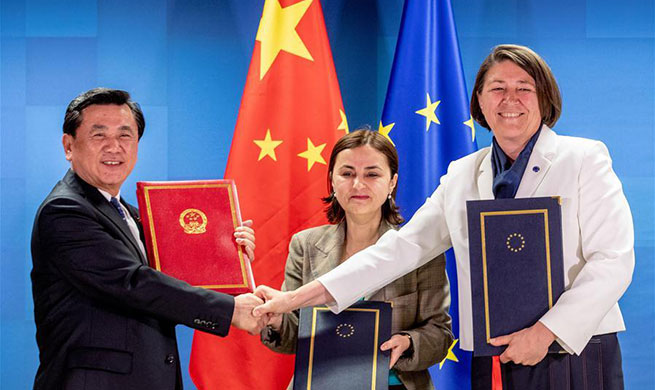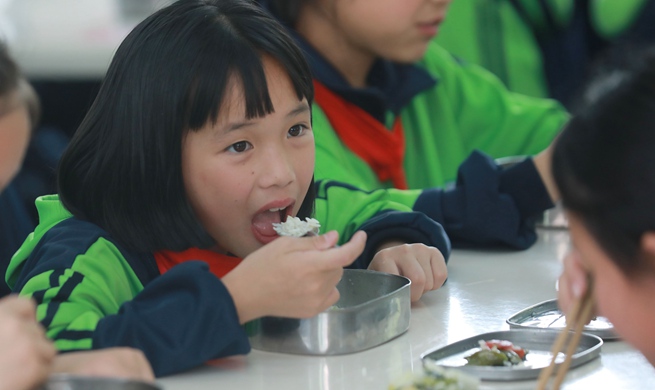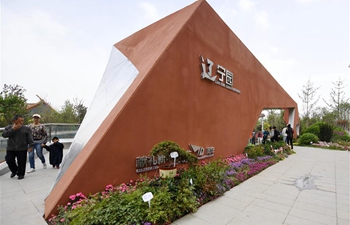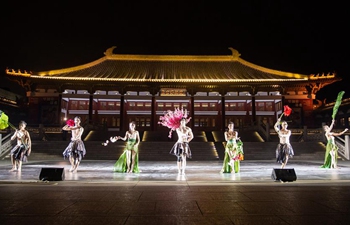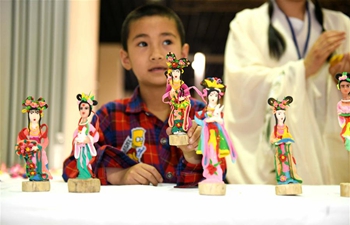YINCHUAN, May 22 (Xinhua) -- Pearl ball, yajia and many other traditional ethnic minority sports were revitalized among young athletes in Ningxia.
Ma Jing, 17, is a basketball player from Xiji High School in Guyuan city of Ningxia Hui Autonomous Region, and this was her first time playing pearl ball as a front-row attacker at the just-concluded Ningxia Traditional Ethnic Minorities Sports Games.
"Pearl ball is totally fresh to me, and it is unexpectedly interesting," said Ma.
Pearl ball, a traditional sport for China's Manchu ethnic minority group, originated from imitating the folk activity of pearling. Each team has six players with three attackers stealing "pearls" in a fixed area called a "pool", two guards keeping the opposite team from scoring with a clam-like wooden racket and one player with a net seeking to catch the "pearls" and accrue points.
Ma became quite familiar with the rules of this traditional game, since she and her teammates had trained for over one month.
"The attack and defense in 'pool' are similar to basketball, but the net adds more difficulties in scoring," she said, adding that they had trained to coordinate with each other very well even though they came from different ethnic groups.
China has 55 ethnic minority groups, and many have their own traditional sporting events.
Since 1953, traditional ethnic minorities sports games at national or regional level have been held to enhance cultural exchange and mutual understanding among different groups.
In recent years, more young athletes like Ma are signing up to have a go. The five-day games in Ningxia this time attracted over 2,100 athletes, most of whom are young professionals, university students and even high schools.
Cheng Longji, 27, from Ningxia University, is good at wrestling, but he chose to try yajia this time.
"For sports lovers like me, almost all the games are attractive," said Cheng, adding that spirit of winning and working as a team are the same in both ethnic minority sports and modern ones.
Cheng, who was born in Horqin Grassland of Inner Mongolia, grew up seeing his father's generation wrestling for entertainment. He found something common between Yajia and wrestling, especially when using the power of the waist and legs.
Yajia, nicknamed "elephants' tug of war", is mostly seen in Tibet and Guangxi Zhuang Autonomous Region. Unlike an ordinary tug of war between two groups of people, Yajia involves just two people.
Yajia athletes wear a rope loop on their necks and then pull a 4-meter-long rope with a red cloth tied in the middle on all fours, so the key to winning is making full use of the power from one's neck, waist and limbs.
22-year-old Ma Peng from Ningxia Normal University also enjoyed watching other ethnic minority sports games, and found many of his peers were either spectating or competing. "I could feel the passion everywhere in the event," he said.
Fangqi, a traditional chess game in Ningxia usually played by elders, also attracted many student participants and audience members. Hai Guisheng, from the same college as Ma, had a go.
"I used to watch my grandfather play it, and I'm lucky to have a chance to try," said Hai, adding that he learned a lot about fangqi through the event.
Liu Hongzhang, a retiree from the Sports Bureau of Ningxia, has dedicated himself to promoting and passing down Fangqi in recent years. According to him, the local government has made many recent efforts to popularize Fangqi, and the sport has been introduced into P.E. classes in some local primary and middle schools.
"College students like Hai will be the main force for this traditional chess game to be passed on," he said.








